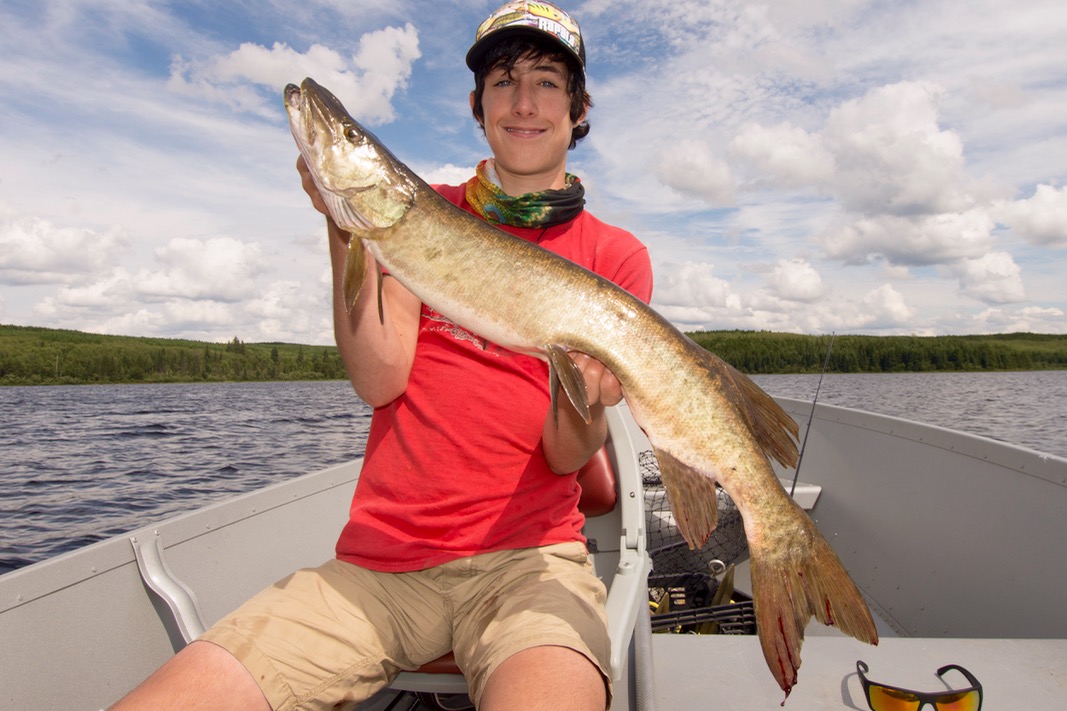Change up
Now’s the time to bust out those new, never-used lures
Advertisement
Most fishing how-to articles focus on ways to counter tough conditions so you can at least scratch out a few bites. But what about those rare days when the stars align and the fish—whichever species you’re after—can’t lay off your bait? Do you just sit back and enjoy the moment, or do you try to squeeze even more success out of the situation?
If only we could predict with certainty those few times each summer when the bite is going to explode. Well, actually, you can indeed forecast with amazing accuracy when you need to drop everything and pick up your fishing rods—if you know what to look for, and what to do.
Advertisement
[easy-tweet tweet=”Having a magical day where you can’t stop catching? It’s time to bust out those new, never-used lures!” user=”OutdoorCanada”]
Watch the weather
The key to a hot bite is a long string of uninterrupted days—the longer the better—when the air temperature and relative humidity are steadily increasing. You’ll find the fishing gets better every day these favourable conditions persist, but the high point will be when the weather report says a massive thunderstorm is rolling your way, bringing with it some relief from the oppressive heat and humidity. Trust me on this, because it will only happen a handful of times during the summer: Go fishing immediately prior to the storm arriving and you’ll knock the ball out of the park. That alone is information worth knowing, but you can double the rewards if you try two things that seem totally counterintuitive.
Advertisement
Fish different water
First, leave your favourite honey hole, even when you’re catching fish. Just before the storm arrives is the time to check out those structure and cover options you’ve always suspected of holding fish, but have never tried. This is the quickest way you can confirm, once and for all, that a good-looking spot is, in fact, a good spot.
Advertisement
Similarly, just before the storm hits is also the time to leave behind the hot lake, river, reservoir, pit or pond where the fish are biting feverishly and test that new water you’ve always wanted to explore. That’s what I did a couple of summers ago when my grandson Liam proclaimed he wanted to catch his first muskie. In that case, I waited until the mid-July temperatures were scorching and the humidity was so stifling we were dripping with sweat as we hitched the boat to the truck.

Our destination was a small backcountry lake I’d never fished before, and I was certain we were going to have fun because the forecast called for a massive thunderstorm later in the afternoon. When the sheets of rain finally descended, Liam and I didn’t much care—we were already on the way home after boating several big toothy critters. Not bad for a 13-year-old kid on his first muskie mission.
Try new presentations
Even if you aren’t willing to leave your favourite hot spot when a big storm is in the offing, you can still take advantage of the situation to try something different. Now’s the time to take off that trusted bait you’ve always relied on and instead cycle through the various lures and techniques you’ve read or heard about and always wanted to try.
It never ceases to amaze me how anglers will routinely make an effort to learn a new presentation at precisely the wrong time—namely, when they’re having difficulty finding fish and none of their usual tricks are working. The problem is, they’re bound to get the same meagre results and learn little.
Instead, the trick is to experiment with a new technique when the action is fast and furious. Whether it’s trolling a slow-death rig for walleye, casting chatterbaits for largemouth bass or pitching swimbaits for lake trout, you’ll often discover the new presentation is even better than your faithful favourite. And in the process of catching fish, your confidence will soar sky-high.
Also catch fishing editor Gord Pyzer on the Outdoor Journal Radio Show on The Fan 590. See www.odjradio.com for times.

